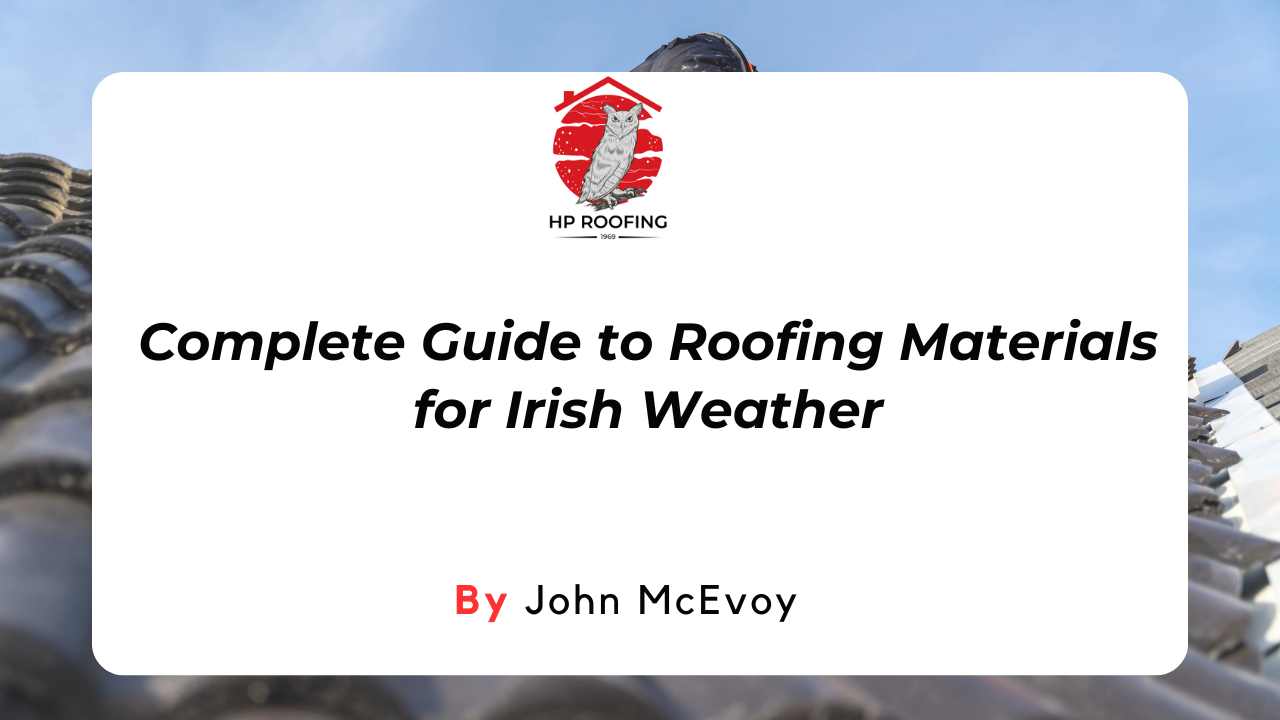Do you know the lifespan of your roof? A strong, reliable roof over your head is a shield that protects you and your family from all sorts of weather. Whether it's a sunny day, a heavy rainfall, or snow, your roof takes it all and keeps you safe. For any homeowner, knowing how long your roof can last is key.
It helps you plan for maintenance, save up for necessary repairs or replacement, and understand how your roof affects your home’s value.
So, how long can you expect your roof to hold up? The answer varies based on the material, the quality of installation, and the climate you live in, but understanding these factors can help you make informed decisions.
In this blog, we'll help you to discover the different types of roofing materials & their lifespan & learn the factors that influence durability.
What are Different Types of Roofing Materials and their Lifespans?
There are various types of roofing materials and these have different lifespan according to the material used.
Asphalt shingles:
One of the most common roofing materials, asphalt shingles are favoured for their cost-effectiveness and ease of installation.
Typically, these shingles last about 20 to 30 years. The lifespan can vary depending on the climate and the quality of the shingle. Regular maintenance can help extend their life, but harsh weather conditions can shorten it.
Metal roofing:
Metal roofs are known for their durability and long lifespan. Depending on the material—whether it’s steel, aluminium, or copper, metal roofs can last anywhere from 40 to 70 years.
They are particularly resistant to harsh weather and can be an excellent investment for homes in areas prone to severe weather conditions.
Clay and concrete tiles:
Both materials are incredibly durable, with clay tiles often lasting over 100 years and concrete tiles around 50 years.
These tiles are heavy and require a strong structural base, so consideration of your home's capability to support this weight is crucial. They offer great resistance to fire and decay and maintain their appearance over time.
Slate roofing:
Slate is one of the most durable roofing materials available, with a lifespan that can exceed 100 years if properly maintained.
It’s heavy and expensive, but its longevity and classic beauty make it a preferred choice for high-end homes. Slate is also fire-resistant and environmentally friendly since it’s made from natural stone.
Wood shingles and shakes:
Wood roofs, made from materials like cedar, can last 25 to 30 years. They offer a natural look that is particularly popular in rustic settings. However, they require regular maintenance to prevent decay, mould, and damage from insects. Wood shingles and shakes are not recommended in areas prone to fire.
As we consider these options, it’s clear that the right choice depends on not just your budget but also your climate, maintenance commitment, and how long you plan to stay in your home.
What are the Factors that Influence Roof Lifespan?
Understanding these factors can help you make informed decisions about your roof and home maintenance.
Quality of installation:
The way your roof is installed plays a huge role in how long it will last. A roof that's installed properly by experienced professionals can withstand the elements better and will last much longer.
On the other hand, a poorly installed roof can lead to problems like leaks and structural damage much sooner than expected. Always make sure to hire reputable and experienced roofing contractors who can ensure the job is done right.
Material quality:
Different materials have different lifespans. High-quality materials might cost more upfront but can extend the life of your roof significantly.
For example, metal roofs are known for their durability and can last up to 70 years, while standard asphalt shingles might only last about 20 years. It’s important to choose materials that are not only suited to the style of your home but also appropriate for the climate in your area.
Climate and environmental conditions:
The environment where your home is located has a major impact on your roof's lifespan. Harsh climates with frequent storms, heavy snow, or extreme temperatures can reduce a roof's life expectancy.
Homes in areas with mild weather tend to have roofs that last longer. Additionally, exposure to salt can increase the damage of roofing materials on homes near the ocean.
Maintenance:
Regular maintenance is crucial for maximising the lifespan of your roof. This includes cleaning gutters, removing debris, and inspecting for damage regularly. Small issues like a missing shingle or a minor leak can become major problems if left unaddressed.
Setting up an annual inspection with a roofing professional can help catch these issues early, ultimately saving you money and extending the life of your roof.
Conclusion
The lifespan of your roof depends on a variety of factors including the quality of installation, the materials used, environmental conditions, and how well it's maintained. Choosing the right materials and ensuring professional installation are key to maximising roof longevity. Regular maintenance can also significantly extend the life of your roof.
If you're unsure about the condition of your roof or think it might be time for an inspection or repair, don't hesitate to contact HP Roofing. We offer expert services that can help ensure your roof continues to protect your home for years to come. Call HP Roofing today for a consultation.
















